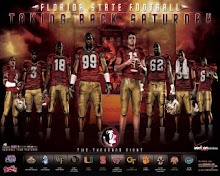
So how did Duke get the name Blue Devils that is now the name for its mascot? During World War I the Chasseurs Alpins, nicknamed "les Diables Bleus," were well known French soldiers. They first gained attention when their unique training and alpine knowledge was counted upon to break the stalemate of trench warfare in their native region of the French Alps. Unfortunately the Vosges Campaign in March, 1915, failed to alter the status quo even though the Blue Devils won accolades for their courage. However, their distinctive blue uniform with flowing cape and jaunty beret captured public imagination. When the United States entered the war, units of the French Blue Devils toured the country helping raise money in the war effort. Irving Berlin captured their spirit in song describing them as "strong and active, most attractive . . . those Devils, the Blue Devils of France."
As the war was ending in Europe, the Trinity College Board of Trustees lifted its quarter-century ban of football on campus. After playing an intramural class schedule for one year, Trinity began intercollegiate competition in 1920. That first year the traditional nomenclature of the Trinity Eleven, the Blue and White or the Methodists (as opposed to the Baptists of nearby Wake Forest) described the team.
The Trinity Chronicle, launched a campaign for a "catchy name, one of our own possession that would be instantly recognizable nationwide in songs, yells and publicity." At a campus pep rally to stir up enthusiasm it was pointed out that Georgia Tech was gaining recognition as the "Golden Tornados" and that rival North Carolina State College had recently adopted the name "Wolf Pack." There were numerous nominations including Catamounts, Grizzlies, Badgers, Dreadnaughts, and Captains which was in honor of the well-liked Coach W. W. "Cap" Card. Believing a choice utilizing the school colors of dark blue and white to be appropriate, the newspaper editors urged a selection from among the nominations of Blue Titans, Blue Eagles, Polar Bears, Blue Devils, Royal Blazes, or Blue Warriors. None of the nominations won strong favor but Blue Devils apparently had enough support to elicit the criticism that it would arouse opposition on the Methodist campus "for obvious reasons," and that it might prove risky and jeopardize football if a controversial name were used at that particular time. The football season passed with no official selection of a name.
As the campus leaders from the Class of 1923 made plans for their senior year, they decided to select a name since the desired results by democratic nomination and vote had been inconclusive. The editors of The Archive and The Chanticleer, two of the other student publications, agreed that the newspaper staff should choose a name and "put it over." Thus William H. Lander, as editor-in-chief, and Mike Bradshaw, as managing editor, of The Trinity Chronicle began the academic year 1922-23 referring to the athletic teams as the Blue Devils. Their class had been the first post-war freshmen and the student body was full of returning veterans so the name needed no explanation. Trinity College became the nucleus and the undergraduate men's college of Duke University in 1924
Twitter Updates
Thursday, October 25, 2007
Why Not Captain Pocket Protector As The Mascot?
Posted by
tallynolefan
at
5:26 PM
![]()
Subscribe to:
Post Comments (Atom)







No comments:
Post a Comment